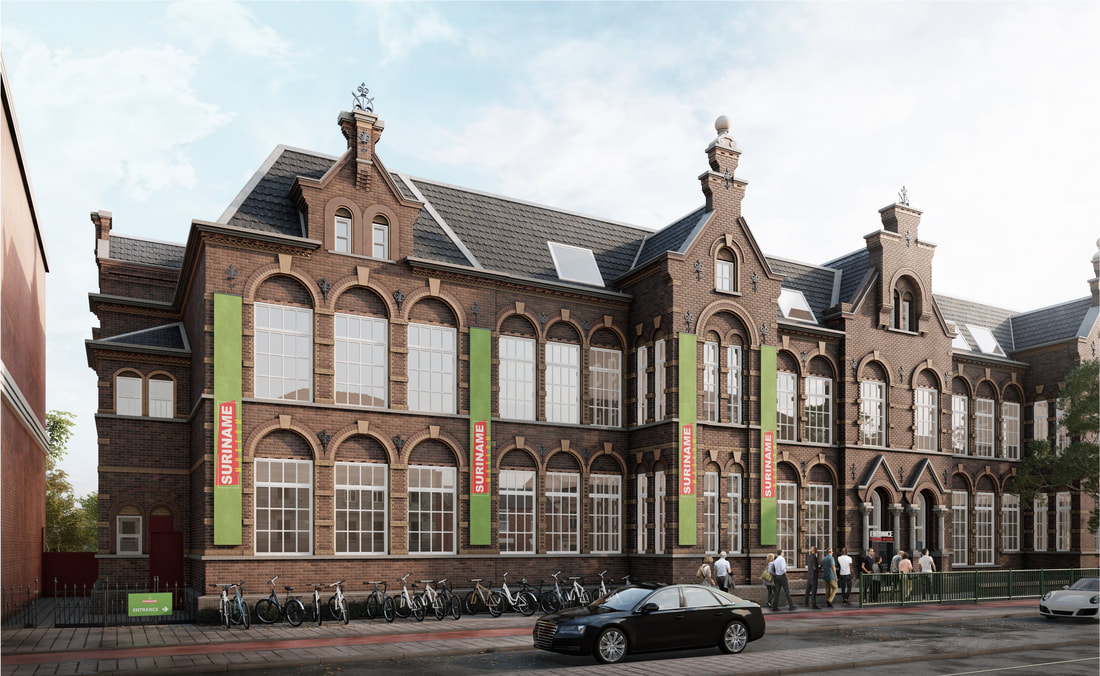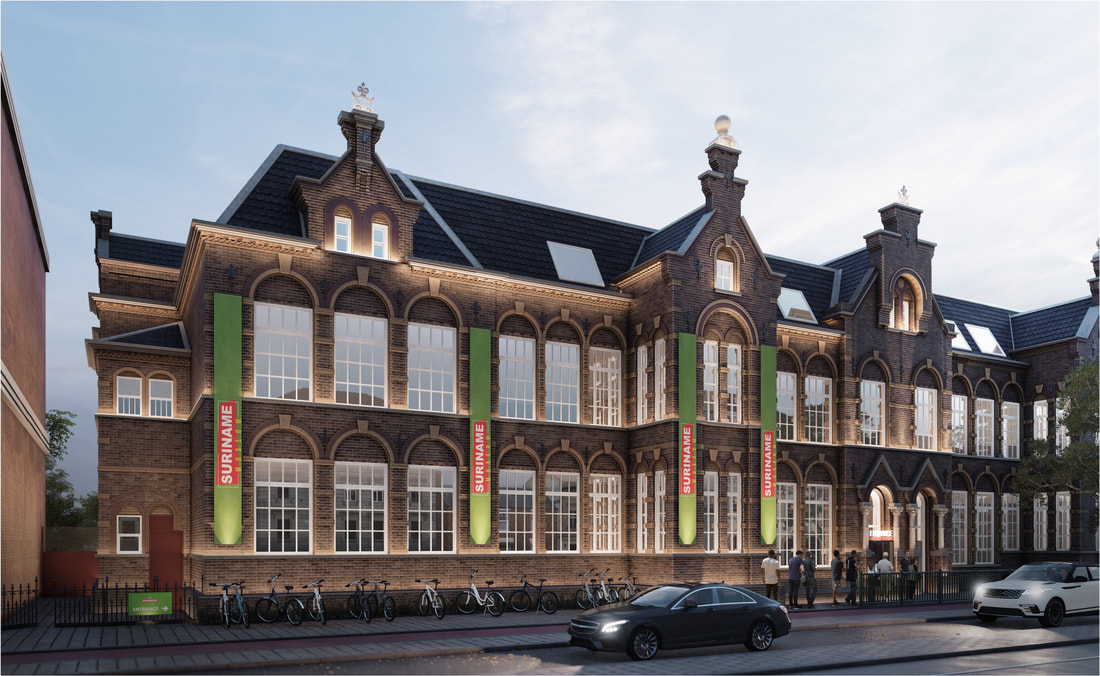The Black Archives will move (temporarily)
The Black Archives is moving! But we will be back. This fall, we are temporarily relocating to the Amsterdamse Poort (Bijlmer) due to the renovation of the building belonging to the ‘Our Suriname Association’. Since its establishment, TBA has managed to have a significant impact with its exhibitions, archive, events, and activism, and we are very proud of this. To continue our work in a sustainable manner, renovation of the building is greatly needed.
Why is TBA moving?
TBA was born in 2016 when the student collective New Urban Collective moved into the building of VOS, the 'Hugo Olijfveld Huis.' The building is owned by the ‘Our Suriname Association’, the oldest association of Surinamese people in the Netherlands, where we found a very special collection. After decades of wonderful activities, the building is in need of refurbishment, which will be carried out in phases over the coming years. The first floor was renovated in 2019, a portion of the ground floor was renovated in 2021-2022, and in 2023, the second floor of the building—where The Black Archives is located—will be tackled. The windows and roof will be better insulated, and the spaces will be designed to better accommodate and safely preserve our unique collections and exhibitions. Learn more about the Suriname Museum.
In the long term, we aim to realize a thorough renovation of the building, including the installation of an elevator to improve accessibility. However, additional resources are needed for this purpose.
Why is TBA moving?
TBA was born in 2016 when the student collective New Urban Collective moved into the building of VOS, the 'Hugo Olijfveld Huis.' The building is owned by the ‘Our Suriname Association’, the oldest association of Surinamese people in the Netherlands, where we found a very special collection. After decades of wonderful activities, the building is in need of refurbishment, which will be carried out in phases over the coming years. The first floor was renovated in 2019, a portion of the ground floor was renovated in 2021-2022, and in 2023, the second floor of the building—where The Black Archives is located—will be tackled. The windows and roof will be better insulated, and the spaces will be designed to better accommodate and safely preserve our unique collections and exhibitions. Learn more about the Suriname Museum.
In the long term, we aim to realize a thorough renovation of the building, including the installation of an elevator to improve accessibility. However, additional resources are needed for this purpose.
The Black Archives is moving! But we will be back. This fall, we are temporarily relocating to the Amsterdamse Poort (Bijlmer) due to the renovation of the building belonging to the ‘Our Suriname Association’. Since its establishment, TBA has managed to have a significant impact with its exhibitions, archive, events, and activism, and we are very proud of this. To continue our work in a sustainable manner, renovation of the building is greatly needed.
Why is TBA moving?
TBA was born in 2016 when the student collective New Urban Collective moved into the building of VOS, the 'Hugo Olijfveld Huis.' The building is owned by the ‘Our Suriname Association’, the oldest association of Surinamese people in the Netherlands, where we found a very special collection. After decades of wonderful activities, the building is in need of refurbishment, which will be carried out in phases over the coming years. The first floor was renovated in 2019, a portion of the ground floor was renovated in 2021-2022, and in 2023, the second floor of the building—where The Black Archives is located—will be tackled. The windows and roof will be better insulated, and the spaces will be designed to better accommodate and safely preserve our unique collections and exhibitions. Learn more about the Suriname Museum.
In the long term, we aim to realize a thorough renovation of the building, including the installation of an elevator to improve accessibility. However, additional resources are needed for this purpose.
What does this move mean for TBA?
TBA has over 10,000 unique books and documents that need to be handled with care. We have a relatively small team and work with volunteers to inventory the collections. In May-June 2023, an "internal move" will take place first. The original archive will be temporarily relocated from the top floor (Zeeburgerdijk 19b) to the ground floor (Zeeburgerdijk 21), where the Facing Blackness exhibition was held. The new location in the Bijlmer will open in the fall, and the exact opening date will be announced later. Stay updated through our social media channels and newsletter.
What will TBA do in the Bijlmer?
In the Bijlmer, we aim to build a community archive where we not only share silenced histories and Black culture but also engage with and be in contact with the community. We currently have a large collection focused on the Surinamese community and history, but we want to expand the collection to include stories, books, documents, and other archival materials from Caribbean and African communities. Do you have any ideas and suggestions for this?
What will TBA do during the summer and around July 1st (Keti Koti)?
On July 1st, 2023, we will commemorate the abolition of slavery, which took place 150/160 years ago. In December, Mark Rutte, on behalf of the Netherlands, ‘apologized’ for its role in slavery. There was much dissatisfaction with the way the apologies were made. Because what do apologies mean without a sincere dialogue with the descendants of enslaved people? What is the significance of apologies if they are not connected to restitution and reparations? And what do descendants of enslaved people need to heal and address the injustices and inequalities resulting from the legacy of slavery? "We are writing not a full stop, but a comma" said Rutte, quoting artist Serana Angelista. Which words and sentences do we want to see after the comma?
On July 8th, 2023, The Black Archives will open an exploratory exhibition centered around these questions. What does healing mean to you? What does restitution mean to you? Share your thoughts and opinions in the exhibition! You can also learn about the history of resistance by Maroons, the parliamentary debate on the abolition of slavery, and have the opportunity to visit our unique archive.



